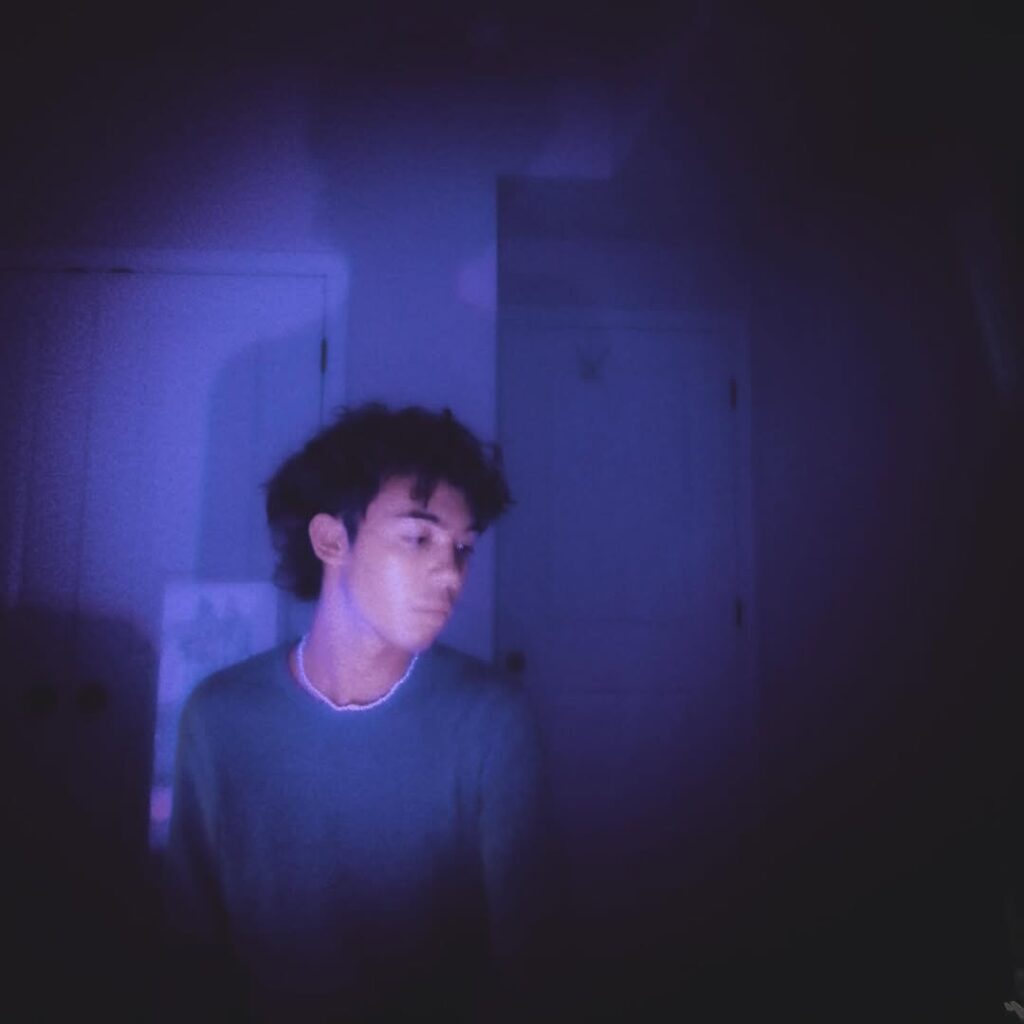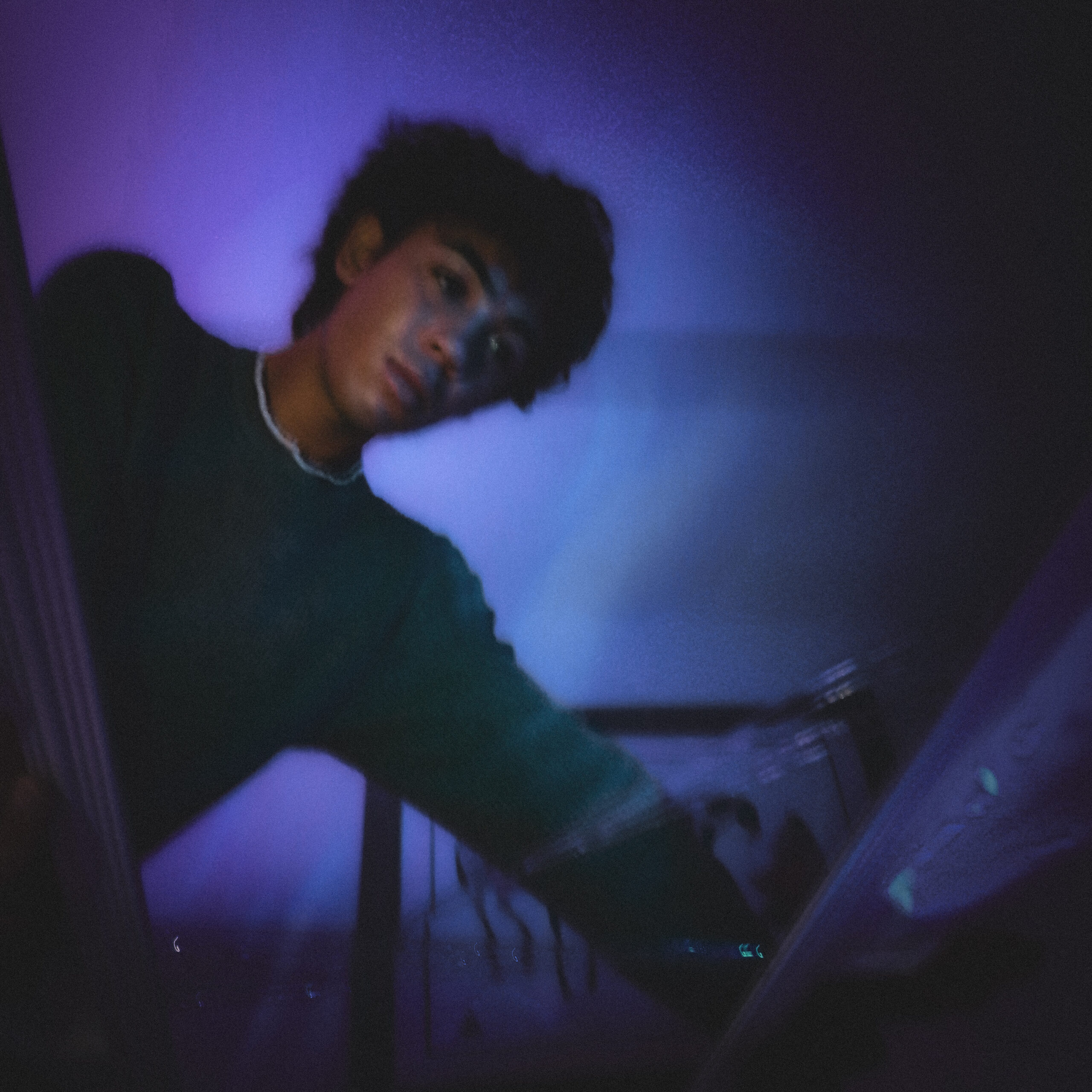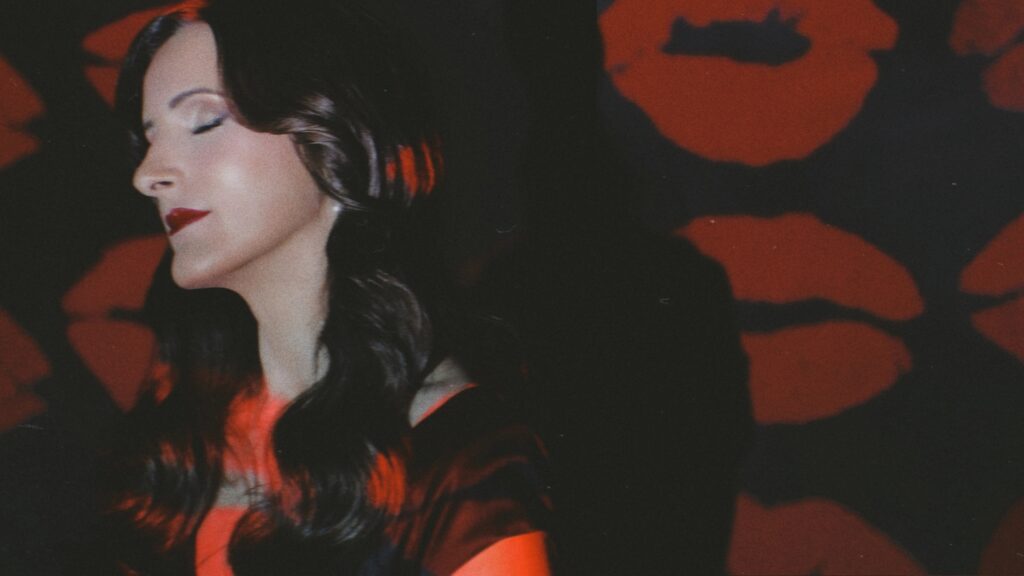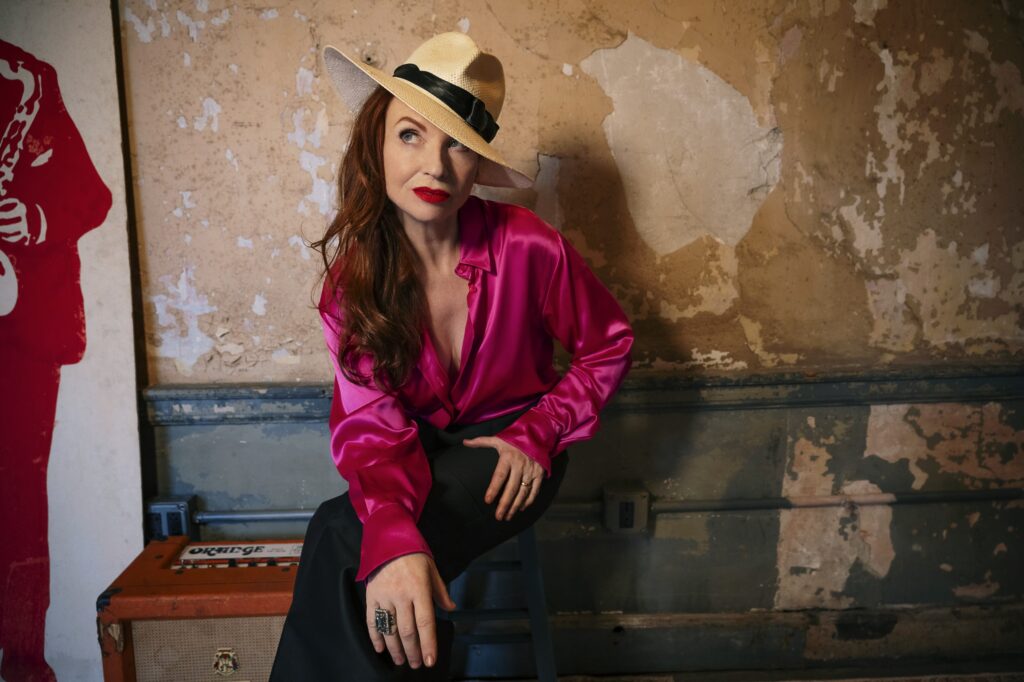When Cooper Gaull started writing Hologram, he wasn’t chasing perfection. He was trying to figure out who he was. The six-track indie-pop project became a space for him to unpack what it means to live between who you are and who you pretend to be — a blur that defines so much of growing up online.
“I spent every second of the day aiming to be the best version of myself, the funniest version, the coolest version,” he tells me. “But I would go home and feel empty. I realized that to be fully happy I had to be fully myself.”
That realization runs through every second of Hologram. It’s an EP about chasing connection in a world that often feels half-real. Across six tracks, Cooper blends warm, cinematic production with raw, introspective songwriting to create a body of work that feels both vulnerable and alive. Each song stretches toward understanding, capturing the ache of wanting to be seen and the beauty of still believing in love anyway.
When asked what it means to “perform your own life,” Cooper pauses before answering. “Being authentic is one of the most important things to me,” he says carefully. “Every track on Hologram feels like an extension of myself, sharing little by little what I’ve been going through this past year. I was authentic, but it was curated — curated so others could understand and relate to the words I was singing.”
It’s a striking admission for someone so young, and it reveals the quiet self-awareness behind his writing. Hologram doesn’t present authenticity as something pure or unfiltered. Instead, it treats it as a translation — a language we keep rewriting so people can understand what we mean. The record never feels cynical about that process. If anything, it’s hopeful. It suggests that even curated truth can still be real, if it comes from a place of care.

There’s a cinematic pulse that runs through Hologram. When I ask Cooper what that looks like in his head, he lights up. “I have these major music videos in my mind for a lot of the songs,” he says. “When I listen to ‘Bullseye,’ I picture moving trains, city lights, and electric subway stations. It’s filled with so much movement that could really work visually. I see myself running through subway stations and dancing alone on a moving midnight train.”
That image — motion, loneliness, light flickering against glass — matches the record’s texture. It took years for Cooper to sound like himself. “My first songs were absolute sh*t,” he says, laughing. “There’s no way around it. I started writing when I was around 12, inspired by folklore and evermore by Taylor Swift. I aimed to imitate that kind of songwriting, yet the lyrics were hollow attempts at storytelling.” That kind of honesty is rare in interviews, but it’s also what makes Hologram work. There’s no disguise here, no posturing. Just a young writer who’s already gone through the most painful but necessary part of growing up as an artist: realizing imitation is a phase, not a destination.
“I kept writing every single day,” he continues. “As the years went on, I became honest, and I became able to use my language as a skill for art. It took me years to find my voice, but I really believe that I’ve found it.” It shows. Hologram sounds confident but never forced. The melodies are lush, the vocals soft but certain, and the lyrics read like fragments of a diary finally made public.
For a project so emotionally intricate, Cooper says the process came easily. “Every song and every lyric poured out naturally,” he explains. “For every song, it took me around one or two writing sessions to write alone, with no rewrites. I felt so creatively liberated, because I would write with no thought, and then I would sit back and be amazed at the words I put on the paper.”It’s that sense of flow that gives Hologram its natural rhythm. Each track feels spontaneous yet focused, like a voice memo that evolved into a confession. “A lot of these lyrics and emotions feel like they were just set into my brain,” he adds. “Fully beautiful and fully mine.
You can hear traces of Olivia Rodrigo, Phoebe Bridgers, and Taylor Swift in Cooper’s work, but he’s not chasing their sound. He’s studying their sincerity. “They’re masterclasses in lyricism, storytelling, and voice,” he says. “One of the most important things in music is to make listeners feel something, and these artists all accomplish that. I love heartbreak songs, but I aim to explore them through a different lens. I take what I’ve learned from them — the emotion and storytelling — while making them cinematically my own, turning personal moments into surreal universes.” That’s exactly what Hologram feels like: a universe built from the small, quiet parts of being human. It’s pop music that breathes, that leaves space for you to feel uncertain, too.
A lot of the EP’s emotional clarity comes from isolation. Cooper says solitude was essential to the process. “I strictly wanted this project’s lyrics, vocal production, and melodies to be my own,” he says. “The only way for me to do that was to sit in my solitude and make sure everything was authentic to myself. When I am alone, I am able to be more honest, with a lot of my ideas coming in those moments when I’m processing emotions I didn’t even realize I was carrying.”

On Hologram, the line between personal and universal blurs until it disappears. Songs like “Fix Yourself” and “Angel” sound almost too intimate to share, yet Cooper insists he didn’t overthink it. “I didn’t write with the intent to release,” he explains. “I wrote about what felt authentic, without worrying about what other people would think. People connect most to honest experiences, and for people to relate to this I had to first be honest with myself.”
Cooper knows that his age shapes how people hear him. “I know being 17 leads listeners to expect more juvenile and simplistic music,” he says. “I really wanted to prove to myself that I could write music that sounded mature and carried weight. Teenagers carry heavy emotions too, and it was important for me to show this rawness.” He doesn’t need to overstate it. The songs speak for themselves. They sound older, not because they imitate adulthood, but because they’re honest about what it feels like to grow into it.
When Cooper talks about what the project means to him now, he’s reflective but calm. “A lot of the situations and topics in Hologram were some of the most emotionally damaging things I’ve had to go through,” he says. “Releasing it felt cathartic, and I hope that when I look back I can think not of the negative situations that inspired the songs, but of the art that I made with them.” That’s the quiet beauty of Hologram: it turns pain into perspective without pretending the pain didn’t happen. At its core, the EP isn’t just about heartbreak or self-discovery. It’s about what happens when you stop performing long enough to listen to yourself breathe.
Cooper Gaull is still young, still figuring things out, but Hologram doesn’t sound like a beginning. It sounds like an arrival — the kind that happens quietly, when you stop trying to look perfect and finally start being real.
Featured Images: Artist Supplied





